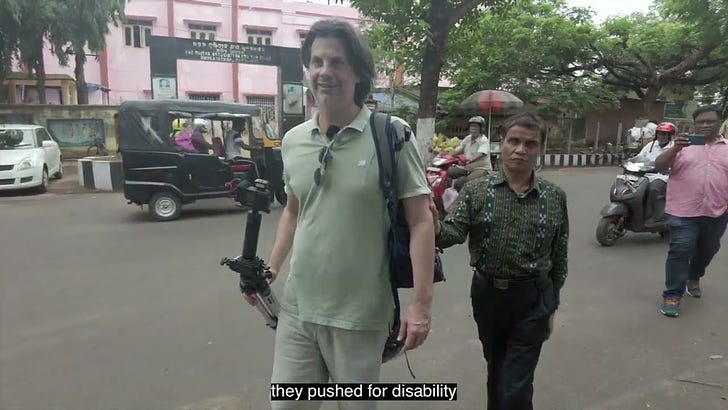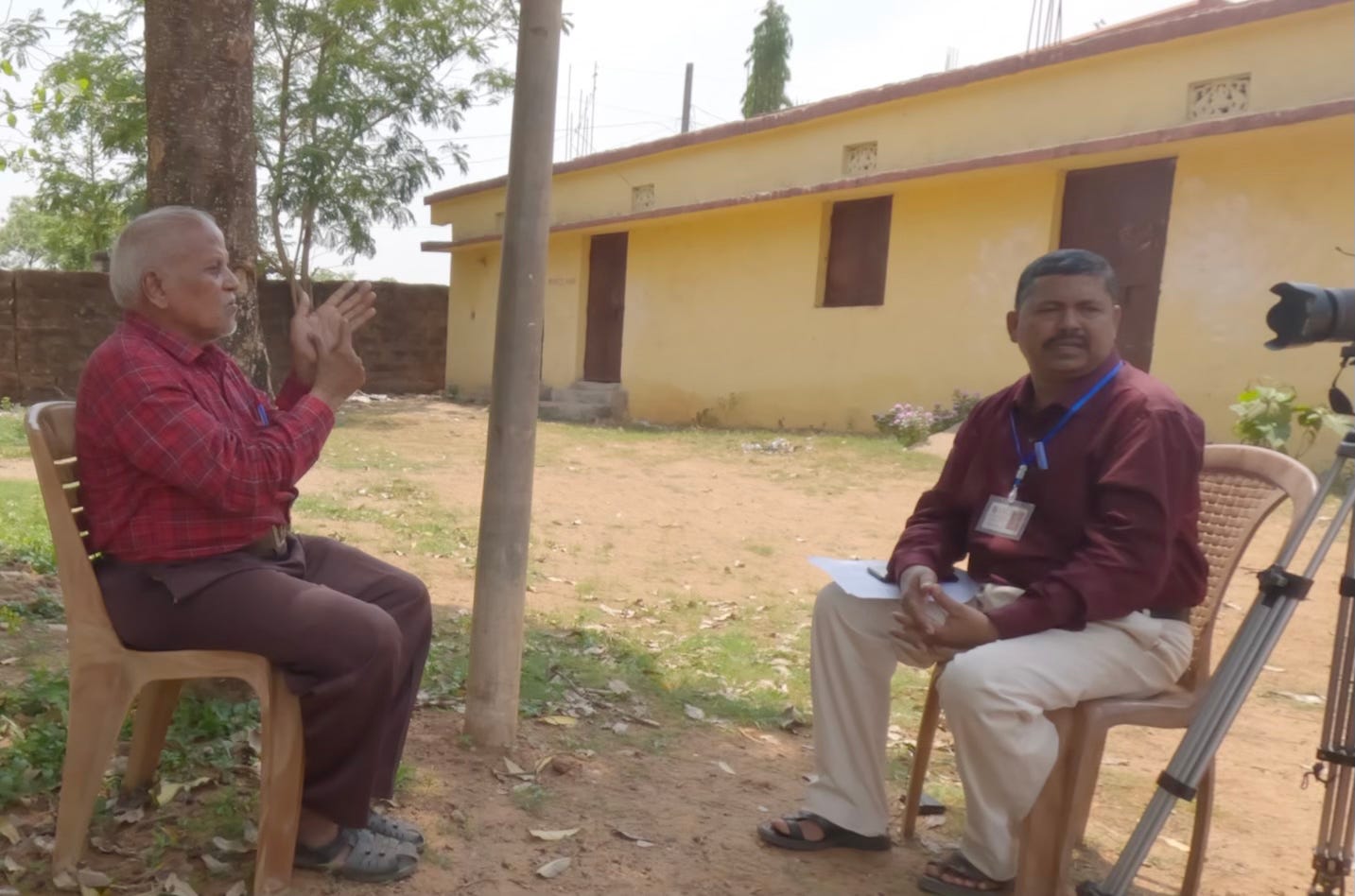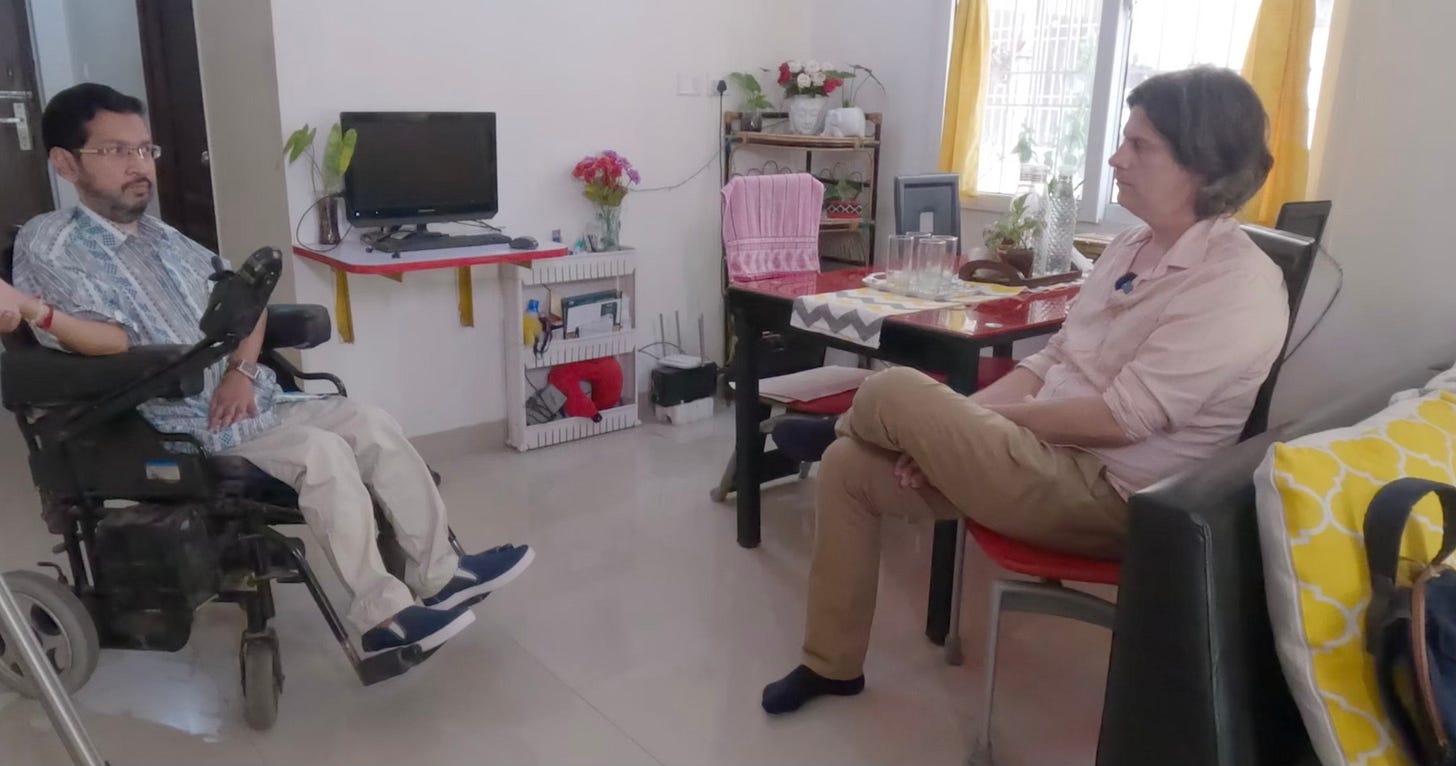Odisha is doing something right when it comes to disaster planning. Ahead of an approaching tropical cyclone, teams of first responders and volunteers throughout the Eastern Indian state go to the homes of vulnerable community members and offer to escort them to storm shelters. But, while advocates credit these proactive measures with saving lives, some say a fully disability-inclusive strategy must go beyond just the evacuation stage.
I spent three months in Odisha earlier this year as part of a project that looks at the ways global warming raises the stakes for people with disabilities in Coastal South Asia. Have a look at how I undertook my reporting from this part of India for my forthcoming documentary film Invisible Impact; Disability on Climate Change’s Frontline.
An audio described version of this video can be found here.
Odisha is perhaps India’s most climate change affected state. While intense storms and tropical cyclones aren’t new here, reports indicate they are becoming stronger thanks to the steadily warming water of the Bay of Bengal. And that means the risks for people with a disability become even greater.
Unlike some other coastal states I visited, authorities here have well thought out and rehearsed protocol for keeping people safe during emergencies. But, this DRR (disaster risk reduction) policy was born out of tragedy- the 1999 super cyclone that killed around 10-thousand people. With those lessons learned, by the time cyclone Fani was poised to strike the coastal city Puri in 2019, authorities were ready. In the end, 64 lives were lost, according to local media,
Disability inclusion in the state’s evacuation and sheltering strategy was baked in from nearly the start. In the wake of the 1999 storm, disability advocates urged the government to ensure that members of this community wouldn’t be left behind. Notably, the Shanta Memorial Rehabilitation Centre was at the forefront of this movement and has since influenced local, national as well as international DRR policy. Today, a handful of disability groups in Odisha, including Aaina, OLS and Swabhiman, are all involved in some aspect of disaster response training and relief.
During my three month stint as a Fulbright researcher in Odisha, I spoke with disabled residents, advocates, environmental scientists, policy analysts and government officials to get a sense of how this all came together. I did come away with a feeling that in light of its success in preparing for recent cyclones, the Odisha State Disaster Management Authority (OSDMA) is resting on its laurels and not addressing some of the concerns raised by disability groups. One of those activists is Jitendra Kumar Biswal, who has called on authorities to create a unit, or cell, in the OSDMA specifically tasked with coordinating disaster recovery for people with a disability, an area he says is greatly lacking.
Jitendra Biswal Climate change and all these disasters have a catastrophic effect on human beings, but it's even more dangerous, it has serious repercussions on persons with disabilities because when a climate change (event) happens or a disaster occurs, then it affects normal people, but to a person with a disability, it affects at multiple levels. Maybe during a disaster, your house may be blown away, but what happens when our caliper is also washed away, or our wheelchair is washed away? Then it's like a part of our body is gone.
Jason Strother What has the government done right in including people with disabilities in DRR (disaster risk reduction) protocol?
Jitendra Biswal What they have done right is, they have after the multiple disasters, 1999 onwards, they have made cyclone centers accessible. They've put up some ramps. Now, the government has procured, stocked a lot of those devices that disabled people need, like wheelchairs, calipers, canes. But, the problem was there in the distribution. In 2019, when Fani struck, I went to some of the places. Everyone was talking about food and tents and everything. But, disabled people have different demands. They were asking for wheelchairs, they were asking for their canes and calipers and other kinds of things, which were blown away in the wind. But when we approached the government, they had hundreds of wheelchairs, everything, but they were waiting for the assessment report from the local cities. And days had gone by. When the cyclone hit, even 10 days later, they still had not gotten those devices.
Jason Strother Is there a way for people with disabilities to have input with the government on DRR policy?
Jitendra Biswal Frankly speaking the government has a department called Social Security and Empowerment of persons with disabilities. But for me, the problem is it is only manned by all able-bodied people. I have always believed unless you yourself experienced disability you can't have that specific perspective.
Jason Strother You think a disability cell in the OSDMA could improve DRR for people with disability?
Jitendra Kumar Biswal Definitely. I had told them (the OSDMA) the first thing they can do is they can sensitize their staff. The people working on the ground. They don't have any specific training, how to rescue or evacuate somebody with a disability, they have been given only general training. So I said, if somebody is not properly trained how to handle someone like me, they may end up aggravating my disability. And when your officials go there (to a disaster site), if there's a disability cell, they could give you better advice on the ground. They can have a better sense of the problem that people with a disability might be facing.
Note: While I was unable to get the OSDMA to commit to an on the record talk or email, off the record, an official did acknowledge the need to create a cell to handle disability concerns.
This interview was edited and shortened for clarity.
Invisible Impact
Disability on Climate Change’s Frontline
An audio described version of the trailer below can be found here.
To find out more about my forthcoming short film, reach out to me at jason@lens15.com or reply to this newsletter.
Learn more at Lens15.com/impact
Keeley Giblin edited this newsletter




